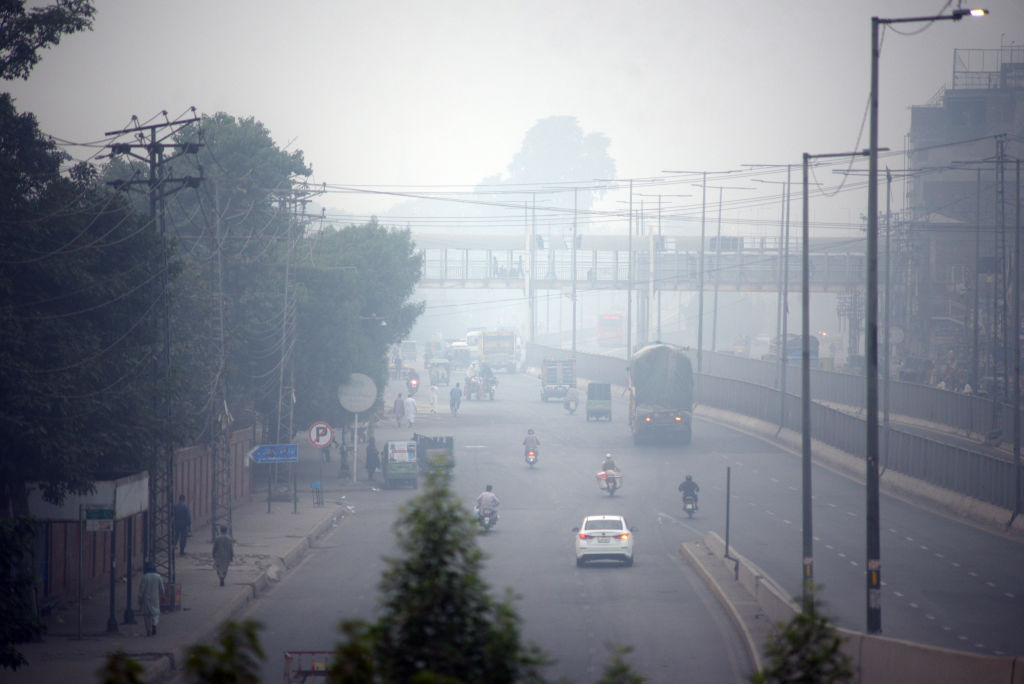Pakistan’s Punjab province is grappling with a severe pollution crisis as air quality hits unprecedented levels. Multan’s Air Quality Index (AQI) reached an alarming 2,135, casting the city in a thick, hazardous smog that disrupted daily life and prompted emergency measures.
In response to the worsening smog, the Punjab government has implemented strict measures, including the closure of parks, museums, and other public spaces until at least November 17. According to IQAir, a Swiss-based air quality monitoring service, Multan’s AQI peaked with PM2.5 concentrations at 947 micrograms per cubic meter—nearly 190 times the World Health Organization’s (WHO) safe limit.
To curb the spread of smog, Deputy Commissioner Waseem Hamid Sindhu has imposed a ‘smart lockdown’ in Multan. Under these restrictions, markets must close by 8 p.m., and traffic police are actively targeting vehicles emitting excessive smoke. There are also intensified efforts to crack down on stubble burning, improper waste disposal, and brick kilns operating without eco-friendly technologies.
Nearby areas like Bahawalpur, Muzaffargarh, and Khanewal face similarly hazardous conditions. Nishtar Hospital, Multan’s primary medical facility, has set up specialized smog treatment counters in its emergency and outpatient departments as respiratory issues rise. Despite this, locals report insufficient enforcement of restrictions, noting that children continue to play outdoors despite school closures. Many residents are also experiencing sore throats, coughs, and other health complications due to the toxic air.
In Lahore, the AQI spiked above 1,000 on Friday night, briefly positioning it as the world’s most polluted city. Authorities have imposed a complete ban on public access to parks, playgrounds, and other recreational areas in Lahore, Nankana Sahib, Gujranwala, Sialkot, Faisalabad, Chiniot, and Jhang, warning violators of penalties under Section 188 of the Pakistan Penal Code.
Senior Minister Marriyum Aurangzeb announced that additional steps are underway to address the crisis, including covering cargo trucks to minimize dust, advising children to remain indoors, and imposing strict penalties on polluters. In a bid to reduce emissions, authorities have shut down non-compliant food stalls and temporarily closed heavily affected roads across southern and central Punjab.
(Inputs from ANI)




















